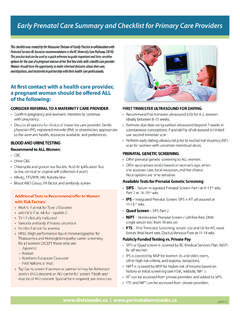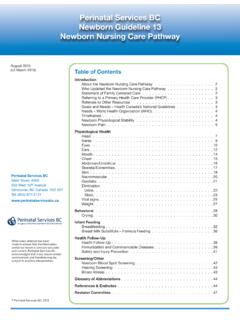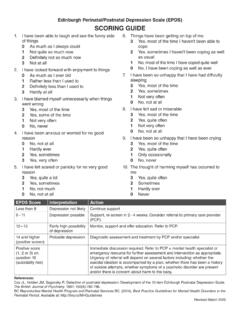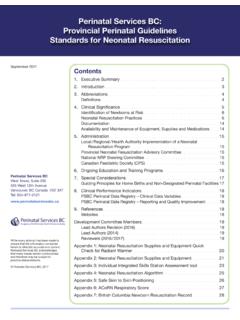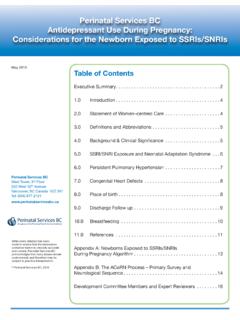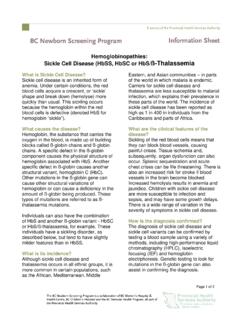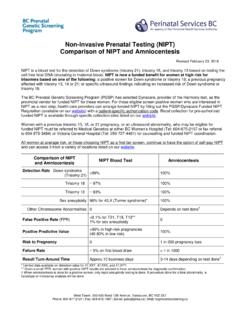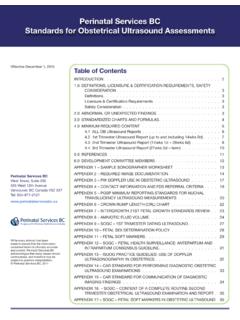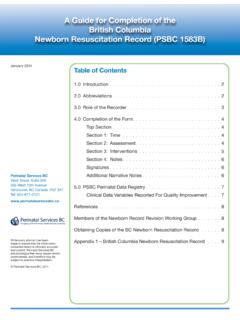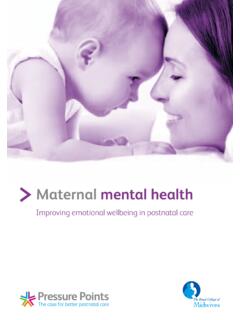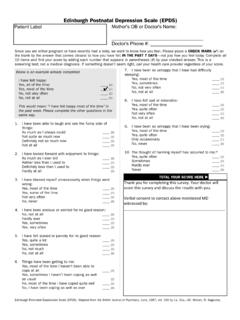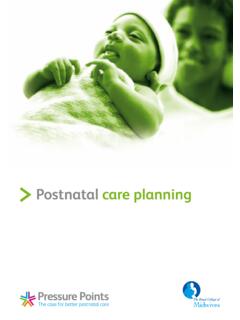Transcription of Edinburgh Perinatal/Postnatal Depression Scale (EPDS)
1 Edinburgh Perinatal/Postnatal Depression Scale (EPDS)For use between 28 32 weeks in all pregnancies and 6 8 weeks postpartumName: Date: Gestation in Weeks: As you are having a baby, we would like to know how you are feeling. Please mark X in the box next to the answer which comes closest to how you have felt in the past 7 days not just how you feel today. In the past 7 days:1. I have been able to laugh and see the funny side of things 0 As much as I always could 1 Not quite so much now 2 Definitely not so much now 3 Not at all6. Things have been getting on top of me 3 Yes, most of the time I haven t been able to cope 2 Yes, sometimes I haven t been coping as well as usual 1 No, most of the time I have coped quite well 0 No, I have been coping as well as ever2.
2 I have looked forward with enjoyment to things 0 As much as I ever did 1 Rather less than I used to 2 Definitely less than I used to 3 Hardly at all7. I have been so unhappy that I have had difficulty sleeping 3 Yes, most of the time 2 Yes, sometimes 1 Not very often 0 No, not at all3. I have blamed myself unnecessarily when things went wrong 3 Yes, most of the time 2 Yes, some of the time 1 Not very often 0 No, never8. I have felt sad or miserable 3 Yes, most of the time 2 Yes, quite often 1 Not very often 0 No, not at all4. I have been anxious or worried for no good reason 0 No, not at all 1 Hardly ever 2 Yes, sometimes 3 Yes, very often9. I have been so unhappy that I have been crying 3 Yes, most of the time 2 Yes, quite often 1 Only occasionally 0 No, never5.
3 I have felt scared or panicky for no very good reason 3 Yes, quite a lot 2 Yes, sometimes 1 No, not much 0 No, not at all 10. The thought of harming myself has occurred to me 3 Yes, quite often 2 Sometimes 1 Hardly ever 0 NeverTalk about your answers to the above questions with your health care provider. Translations for care -provider use available on PSBC website: Royal College of Psychiatrists 1987. From Cox, JL, Holden, JM, Sagovsky, R (1987). Detection of postnatal Depression . Development of the 10-item Edinburgh postnatal Depression Scale . British Journal of Psychiatry. 150, 782 786. Reprinted with Scor
